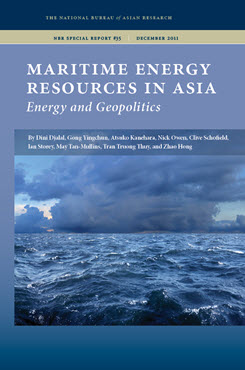Energy Security Concerns
The View from China and Southeast Asia
This essay identifies the causes of increased energy consumption by China and Southeast Asian countries, assesses the potential for energy scarcity and insecurity to cause tension and conflict in the South China Sea, and concludes by considering strategies for promoting regional energy cooperation.
EXECUTIVE SUMMARY
This essay identifies the causes of increased energy consumption by China and Southeast Asian countries, assesses the potential for energy scarcity and insecurity to cause tension and conflict in the South China Sea, and concludes by considering strategies for promoting regional energy cooperation.
MAIN ARGUMENT
Although China and the ASEAN countries vary in resource endowments and energy consumption levels, energy security, resource scarcity, and climate change present major concerns for all countries with energy interests in the South China Sea. To meet these challenges, China and ASEAN countries are accelerating their diversification of energy resources, but significant challenges remain. China has emerged as an increasingly large gas consumer and has put great emphasis on getting as much of its future oil and gas from as close to home as possible, which increases its interest in developing energy resources in the South China Sea. ASEAN countries are also turning to gas to generate electricity and provide for industrial and home use. These trends could lead either to increasingly stiff competition or to enhanced energy cooperation. Energy cooperation between national oil companies in some specific areas could function as a confidence-building measure, laying the groundwork for a process of official regional energy cooperation in the form of an “East Asian energy community.” Such cooperation makes sense from both an economic and a security perspective.
POLICY IMPLICATIONS
- Given the potential for resource competition to lead to conflict in the South China Sea, China and Southeast Asian countries must enhance cooperation by forging a rational energy security partnership in general and maritime cooperation more specifically.
- The prerequisite for China-ASEAN energy cooperation is mutual trust, particularly with respect to the South China Sea.
- The best way to decrease energy concerns is to increase energy efficiency and develop renewable energy. Exclusively pursuing oil for energy security will increase oil dependence and costs in the long term.
- A framework of energy cooperation and joint research between China and Southeast Asia should be supported as a step toward a pan-Asian energy cooperation network.
- China and the ASEAN countries can begin by enhancing energy cooperation in a few specific areas, such as by promoting energy conservation, increasing the efficiency of existing technologies, and modifying consumer energy-use behavior.


